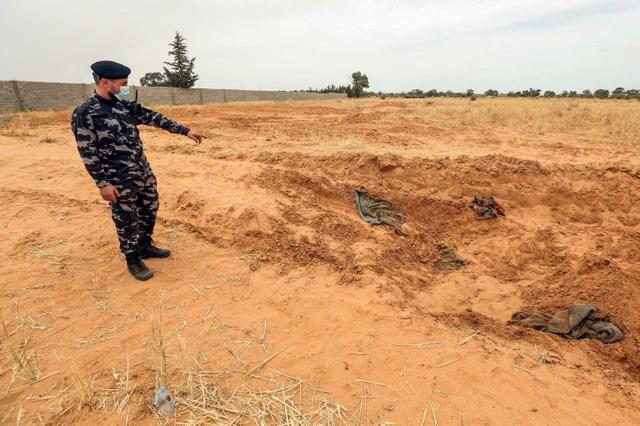- International News
- Web-2020-06-17 | 05:01 pm

The New York-based watchdog said it had yet to receive an answer from Haftar's Libyan Arab Armed Forces (LAAF) to a previous request for information about footage posted on social media last month that appeared to show summary executions and desecration of corpses by his men.
"Haftar needs to urgently hold his forces accountable for any war crimes they are committing and apparently advertising online," HRW's senior Libya researcher Hanan Salah said.
"Senior LAAF leadership has ignored these crimes, but they should be held accountable by domestic and international courts for complicity in abuses."
The allegations have taken on new momentum after forces of Libya's UN-recognised unity government drove Haftar's fighters out of all their remaining positions in the west in recent weeks.
Government forces say they have discovered eight suspected mass graves, most of them in and around the town of Tarhuna, southeast of Tripoli, which served as the main staging point for Haftar's abortive 14-month offensive against the capital.
The United Nations Support Mission in Libya expressed "horror" at the discovery and welcomed a decision by the Government of National Accord (GNA) to establish a committee to investigate the finds.
An AFP journalist on Thursday was granted access to a site where several bodies had been discovered and exhumed by the Libyan Red Crescent for identification the day before.
Scraps of clothing were scattered around the site near graves covered with fresh soil.
Separately, 160 bodies were discovered in the mortuary of Tarhuna's public hospital, according to its director Aburawi Al Buzeidi.
In 2017 and 2018, the International Criminal Court issued warrants for the arrest of a LAAF commander, Mahmoud Al Werfalli, for his role in a series of extra-judicial executions and desecration of fighters' corpses in Libya's second city Benghazi. He remains at large.
Libya has endured years of violence since a NATO-backed uprising toppled and killed longtime dictator Muammar Qadhafi in 2011, with rival administrations and scores of militias battling for power.
The GNA controls the west, including the capital Tripoli, while Haftar's LAAF holds the east and some of the far-flung oases and oilfields that dot the south












